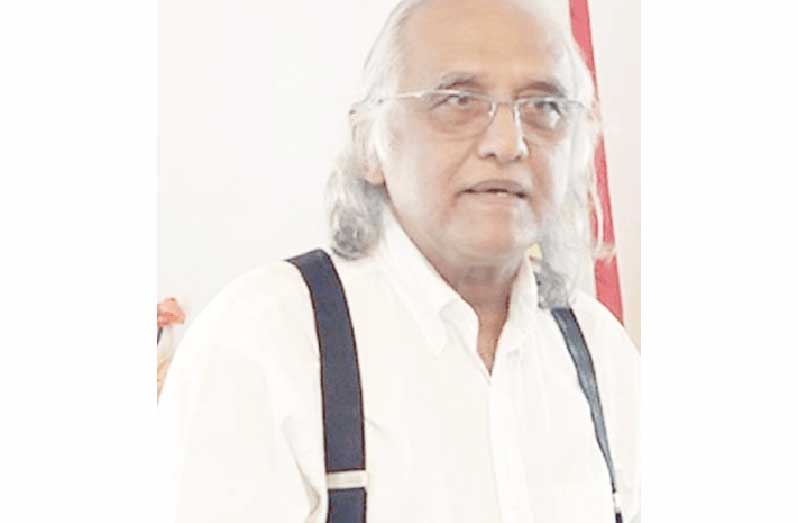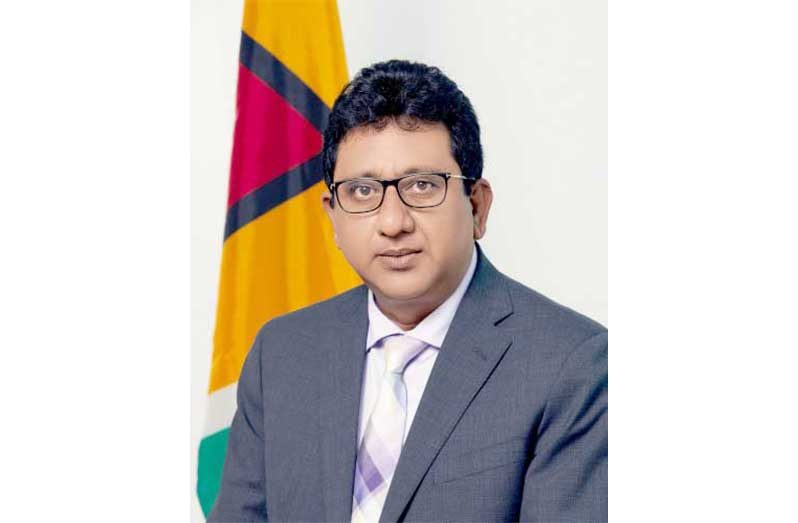–rejects Ram’s push for independent candidates
ATTORNEY-GENERAL (AG) and Minister of Legal Affairs, Anil Nandlall, SC, has firmly rejected a constitutional challenge brought by attorney-at-law and chartered accountant Christopher Ram, that seeks to open Guyana’s electoral process to independent candidates.
In detailed submissions filed in the High Court in Demerara, the Attorney-General argued that Guyana’s electoral framework, which is anchored in the Constitution of Guyana and implemented through the Representation of the People Act (RoPA), was intentionally designed as a party-list proportional representation (PR) model that excludes individual candidacy.
Ram’s application argues that Article 160(2) of the Constitution permits citizens to run for the National Assembly independently, and that RoPA, by failing to provide a mechanism for such candidacy, is unconstitutional.
But the AG asserts that this interpretation is fundamentally flawed.
“The Constitution, properly construed, establishes a system of proportional representation predicated upon a party-list system for the election of members to the National Assembly,” the AG submits.
He said: “It confers no right nor creates a mechanism for independent or individual candidates to contest without being part of a list.”
Tracing Guyana’s electoral history, Nandlall reminded the court that the First Past the Post (FPTP) system was abolished in 1964, giving way to a PR model. This shift, he noted, was neither accidental nor incomplete.
According to him, it was cemented by extensive constitutional reform efforts that culminated in the current framework, particularly Articles 60 and 160, which emerged from national consultations involving civil society and political parties in 1999.
Responding to Ram’s position, the AG submitted: “This narrative is historically and legally unfounded. The people’s will is primarily expressed in the text of the Constitution, and secondarily, through the Acts of their representatives in Parliament.
“These expressions of the people’s will point to the same conclusion: to be elected to the National Assembly, a candidate must be associated with and extracted from a list. The legislative system simply does not allow for a lone ranger.”
The Senior Counsel took issue with Ram’s reading of Article 160(2)(a), which says a person may stand as a candidate “only if…he or she has declared that he or she supports, or has otherwise identified himself or herself with one and only one of the lists.”

Ram interprets this as an implicit guarantee of individual candidacy; a view the AG called a “cherry-picking” of the text.
“The words ‘and only one’…emphasise the connection of the person with one of the lists and not standing as an independent individual,” Nandlall argued, noting: “These are restrictions, not procedural niceties.”
The Attorney-General also pointed out that Ram’s own affidavit acknowledges RoPA’s list-only system, which he described as a constitutional requirement rather than a legislative oversight.
Nandlall cited several authoritative rulings from the Caribbean Court of Justice (CCJ), including Ali and Jagdeo v David, Cedric Richardson, and the recent Sarah Browne decision, as judicial confirmation of the constitutionality and democratic legitimacy of the party-list system.
In Sarah Browne, the CCJ was explicit in its analysis:
“The system does not entitle an elector to cast a vote for any particular candidate. Ballots are cast in secret for a list of candidates… The extracted persons are only then considered and are declared to be elected members of Parliament,” the CCJ stated.
PARTY-LIST SYSTEM
This mechanism, the Attorney-General noted, makes sense only within a party-list system.
He said: “An “independent candidate” scenario does not fit into this extraction model at all. Seats belong to lists—by extension, to parties—which then choose individuals to occupy them.”
AG Nandlall acknowledged the importance of democratic principles, but emphasised that democracy must operate within the framework established by the Constitution.
“Democracy in Guyana’s constitutional and legislative context means a party-list representative system, rather than the concentration of power in an individual,” he submitted, adding: “This is a feature, not a flaw.”
He also dismissed the notion that such a system infringes on fundamental rights, noting that the right to be elected is often subject to qualifications.
“International human rights law recognises the right to participate in public affairs and to be elected, but it also allows reasonable restrictions based on a country’s electoral system,” he stated.
The Attorney-General underscored that any move toward accommodating independent candidacies must be initiated through constitutional amendment—not judicial intervention.
“Guyana’s democracy, as shaped by its Constitution, is one of constitutional supremacy and representative government. Changes to that system…must be achieved by the people’s representatives through the prescribed democratic processes, not by judicial decree,” he said.
Nandlall urged the court to uphold RoPA in its entirety and dismiss Ram’s constitutional challenge.
“Every Guyanese citizen has the right to form or join a political party or list and to seek election under that banner. Every vote cast contributes to the proportional outcome, and every seat is ultimately filled by an individual from a list reflecting that vote.
“This is democracy by party-list design, and it is the system the people have chosen and legislatively passed. It does not accommodate one-man candidacies, and that is by deliberate design, not inadvertence or oppression,” he concluded.
In April this year, Ram filed legal proceedings in the Demerara High Court, seeking a declaration that individuals have a constitutional right to contest elections to the National Assembly as independent candidates within geographical constituencies.
Through a Fixed Date Application (FDA), Ram argued that a proper and true interpretation of Article 160(2)(a) of the Constitution supports the inclusion of independent candidates in the electoral process.
He contended that this provision, when read in its full context, affirmed the right of civic-minded citizens to stand for office without affiliation to any political party.
Additionally, the accountant is asking the court to declare that RoPA is unconstitutional to the extent that it fails or omits to provide a legal framework for such individual candidacies.
He maintained that this legislative gap effectively violates the Constitution of Guyana by restricting electoral participation solely to candidates on political party lists. The matter is pending ruling.



.jpg)









